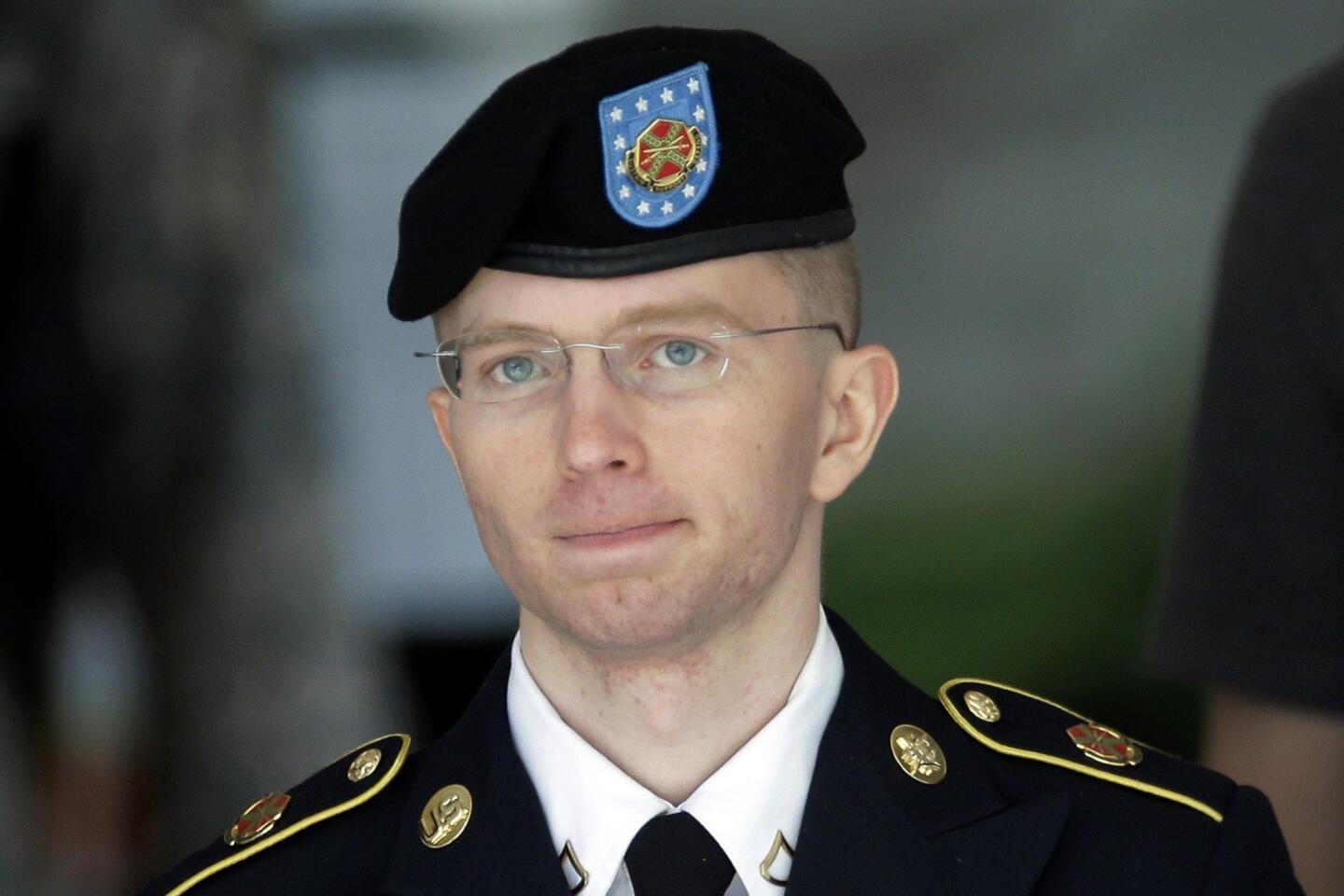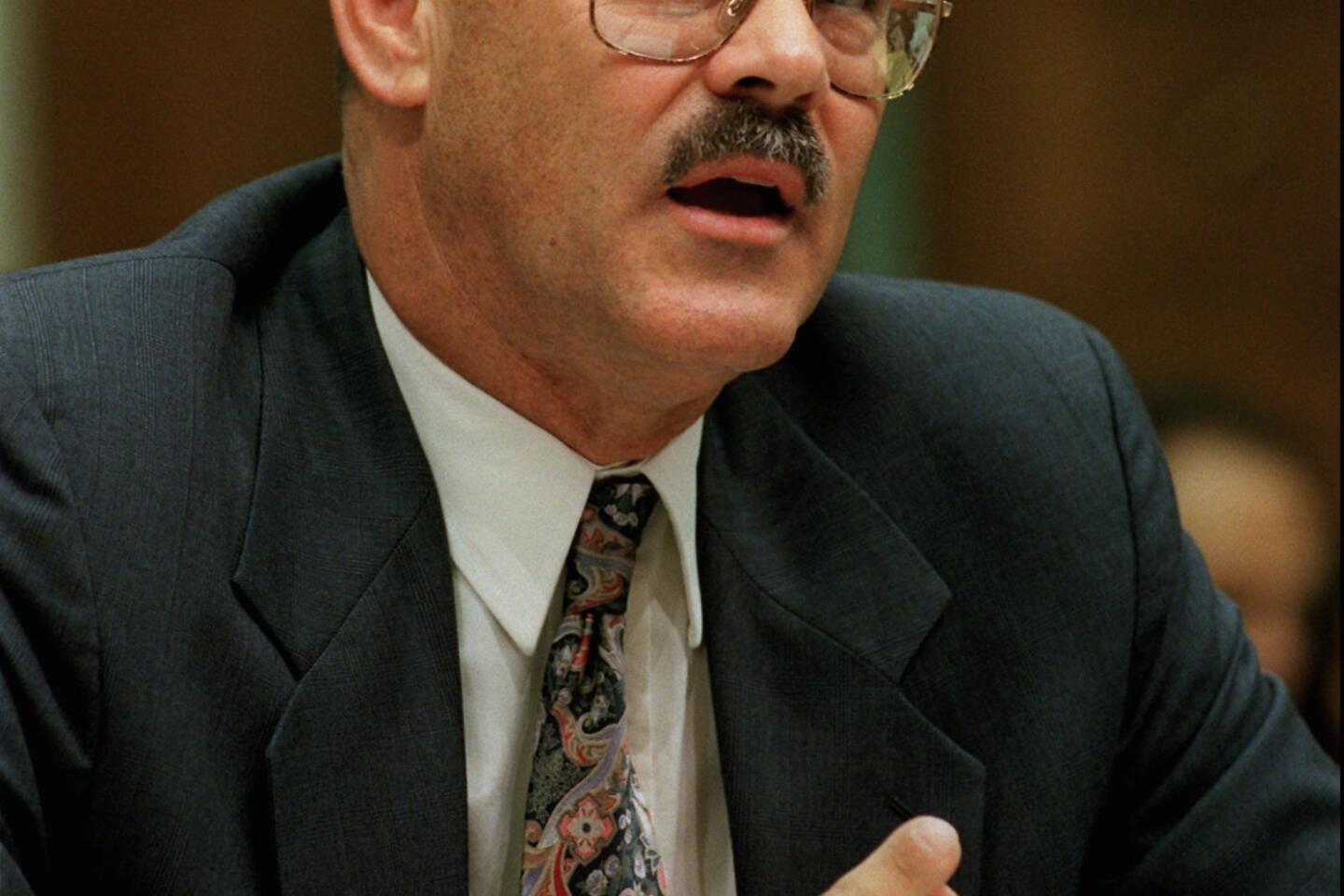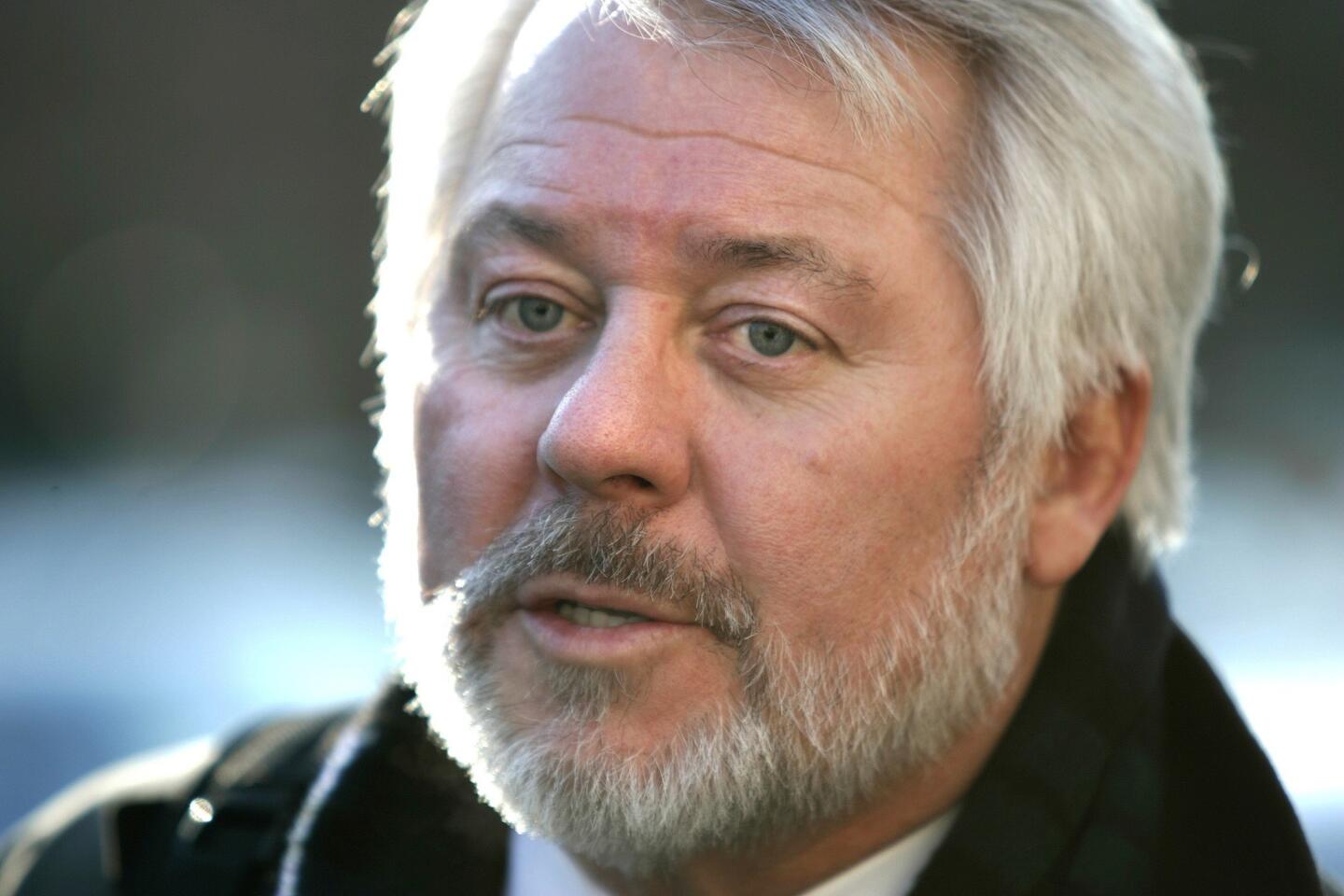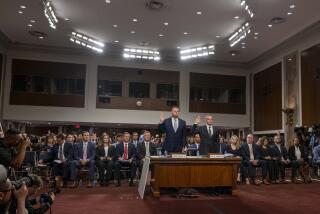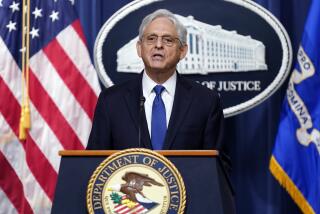Bipartisan privacy board hears conflicting reports on NSA programs
WASHINGTON — A bipartisan board charged with protecting privacy and civil liberties heard a conflicting account Tuesday of how a national security program that seeks to monitor foreign terrorists ended up collecting the phone records of most Americans.
The previously obscure Privacy and Civil Liberties Oversight Board held its first public hearing just weeks after it was revealed the National Security Agency had been routinely collecting all the phone records of Americans since 2006. The five-member panel appointed by President Obama heard from lawyers who helped launch the mass data collection effort as well as from sharp critics of it.
“In order to connect the dots, we need the broadest segment of metadata,” said Steven Bradbury, the former head of the Justice Department’s Office of Legal Counsel under President Bush. He said the NSA does not listen to calls, or even look through the data until officials have reason to check a particular phone line.
“There is no data mining,” and it is not properly described as “surveillance,” he said.
But Jameel Jaffer, a lawyer for the American Civil Liberties Union, denounced the effort as a “massive dragnet” that is both “unwise and unconstitutional.” He also accused the Bush and Obama administrations of having “repeatedly misled the public about the scope of the surveillance” under the anti-terrorist programs.
PHOTOS: 2013’s memorable political moments
The USA Patriot Act authorized the FBI and the NSA to gather records that are “relevant to an authorized investigation” involving foreign terrorists.
That was “supposed to be a limit” on what could be gathered, Jaffer said. Instead, the government has taken the view that it wants to have all the phone records because, someday, a few of them may prove useful to an investigation.
The panel also heard criticism of the secret court that decides whether to approve the government’s requests for obtaining data and listening to phone calls.
The Foreign Intelligence Surveillance Court was created in 1978 at a time when FBI agents were seeking to track Soviet spies who may have been operating in the United States. Since 2001, its judges have been called upon to approve expanded surveillance designed to prevent acts of terrorism in this country.
Kate Martin, director of the Center for National Security Studies, warned the panel of the “rise of a system of secret law” being made by the court that operates behind closed doors.
Retired federal District Court Judge James Robertson, a former member of the special court, said he came away “deeply impressed” with the judges and their commitment to protecting Americans from unreasonable searches.
But it “is one-sided, and that’s not a good thing. A judge needs to hear both sides of the case,” he said.
He urged the panel to recommend a change that would allow someone or some group to argue against expanded surveillance.
Jaffer said he did not understand why all the court’s proceedings needed to be kept secret. For example, the decision on how to interpret the phrase “relevant to an authorized investigation” could have been argued in public by competing lawyers without disclosing national secrets, he said.
David Medine, the Washington lawyer who chairs the panel, was confirmed by the Senate in May. He said its goal is to fully understand how the surveillance programs work and then consider whether to recommend changes to the president.
“We want to spend some time digging into this,” he said, including by reading opinions of the secret court.
The other members include retired Judge Patricia Wald; former Bush administration attorney Rachel Brand, who is now a lawyer for the U.S. Chamber of Commerce; James X. Dempsey, vice president of the Center for Democracy and Technology; and Elisebeth Collins Cook, another former assistant attorney general at the Justice Department.
[For the Record, 1:47 p.m. PST July 9: An earlier version of this post incorrectly spelled Elisebeth Collins Cook’s name.]
Follow Politics Now on Twitter and Facebook
More to Read
Sign up for Essential California
The most important California stories and recommendations in your inbox every morning.
You may occasionally receive promotional content from the Los Angeles Times.
